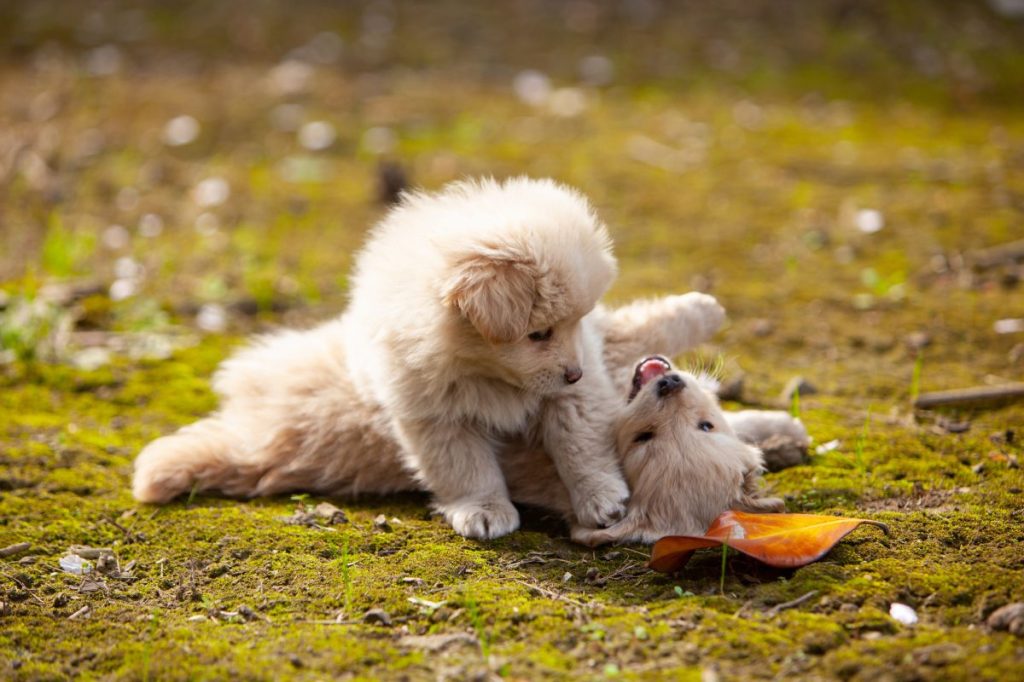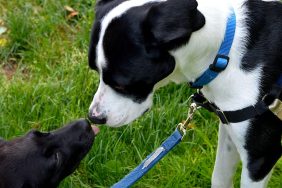Question:
I know that “play dates” are a great way to socialize puppies. How do I set up a puppy play date and what should it involve?
Answer:
The best way to socialize your puppy is through a supervised puppy play date or sponsored play groups. Ask your trusted trainer, groomer, or vet if there are any groups in the area. Play sessions through a trainer may be the best route for first-time puppy parents who need a little hand-holding in the process. Trainers can also provide explanations as to why Fido growls and pounces, loves to chase, or barks during play. A supervised play group can help you determine what is appropriate puppy play, and what may constitute “bullying.”
Meetup.com is a fantastic resource for finding existing play groups in your area. You can search by breed, location, and/or type of play group. If you go to a play group, remember to bring your camera.
What happens during a puppy play date
More often than not, puppies will run, chase, bark, tussle, fall down, and (of course) play-bow during a play session. You may notice your puppy play-bows when you have something they want or is taunting the family cat. This is normal puppy play and nothing to be concerned about. Dogs and puppies should engage in role reversal: chase/be chased, pounce/be pounced on.
Occasionally a young puppy may bite too hard on a playmate. This is absolutely normal. Your puppy is learning “bite inhibition” — that is, learning to not bite too hard during play. If they do bite too hard, their playmate walks away and the game is over (for about 5 seconds). Your puppy just learned a lesson. However, if this behavior is persistent — or is accompanied by growling, lifting their lip, general overstimulation, or “bullying” — see a trainer with a background in positive reinforcement. They can help you curb unruly play before it becomes a more serious behavioral issue.
Keep in mind that some dogs are intrinsically shy or introverted. With time, these pups will likely come out of their shell, but don’t force them into play. In the event your pup gets stepped on, startled, or injured, their trust in you will be diminished. They will also have a negative association with play, which is harder to correct than shyness. If your dog seems nervous or shy, make sure there are plenty of places they can hide, duck behind, and escape to. In cases of severe shyness, try exposure to one gentle dog or an easygoing puppy. A few backyard sessions with an easygoing canine can be the perfect precursor to rowdy dog parks.
If your dog is the rowdy one at the park, direct them to play with dogs of similar energy levels. Do not allow them to bombard shy dogs. Play is an excellent way to tire out your dog, build socialization skills, and teach them how to behave around small dogs and big dogs alike. It’s a great way for your puppy to learn bite inhibition and become comfortable with different kinds of dogs, all while doing what dogs do: pouncing, running, drooling, and rolling in the dirt. It’s also good for their humans, who get to hone their socialization skills as well.









